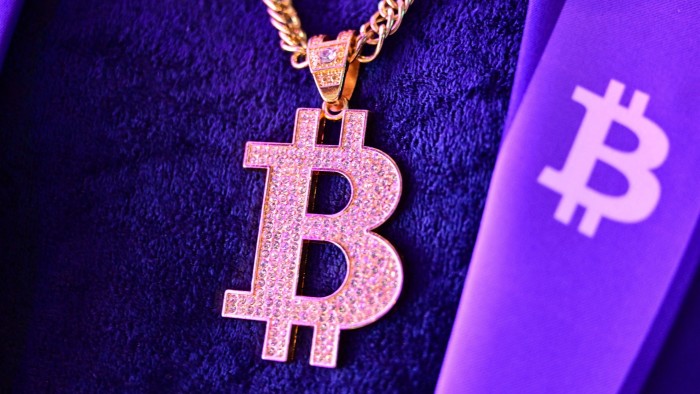Unlock the Editor’s Digest for free
Roula Khalaf, Editor of the FT, selects her favourite stories in this weekly newsletter.
Does it make sense for a company to hold a huge pile of cash on its balance sheet? Theoretically, no — it’s better to give the money back to shareholders and let them decide what to do with it. In reality, companies like Apple and Berkshire Hathaway have become enormous piggy banks, and investors seem fine with it.
Some companies are taking this anomaly and running with it — by holding bitcoin rather than dollars. Presidential family business Trump Media & Technology Group has raised $2.5bn for this purpose. It joins libertarian streaming platform Rumble, meme-stock favourite GameStop and Elon Musk’s carmaker Tesla. The granddaddy of crypto treasuries is Strategy — previously known as MicroStrategy — which owns $64bn of bitcoin.

There are three possible reasons a company might give for holding a digital asset such as bitcoin. One is simply to gain if the price rises. That, aside from being unknowable, is easily dismissed. Investors can invest in the token themselves, directly or though ETFs.
A better reason might be that the company thinks it can do something with bitcoin that investors can’t. In Strategy’s case, that something is shrewd financial engineering involving the issuance of convertible bonds and preferred shares on favourable terms, raising money to buy more tokens.
Strive, a conservative-leaning asset manager about to go public through a merger with a listed company called Asset Entities, hopes to add its own twist to that business model, buying up companies with undervalued cash piles and converting them into bitcoin. It said on Tuesday it planned to raise up to $1.5bn and would deploy it in “alpha-generating”, or market-beating, strategies.
In some cases, companies claim bitcoin is a logical complement to their other businesses. Investors should believe in the profit from such imprecise opportunities when they see it. Rumble wants to offer crypto wallets. Trump Media claims it will generate “synergies for subscription payments, a utility token and other planned transactions”.
The third argument is that bitcoin is the future, so not holding it would be foolish. Strive chief executive Matt Cole argues loftily that bitcoin should be the baseline from which other assets and investments are measured, and that Strive is its Berkshire Hathaway. Trump Media sees bitcoin as “an apex instrument of financial freedom” that will free it from harassment by mainstream financial institutions.
To someone who believes in bitcoin supremacy, this all makes perfect sense. Companies that leverage up to buy digital tokens will reap magnified returns, sailing joyously towards the point where bitcoin replaces the dollar as the global financial lingua franca. Return on equity is, in this world, old hat; bitcoin per share is the metric to chase.
Most shareholders of listed companies probably still prefer real assets with predictable cash returns. They should see the bitcoin treasury trend as what it is: a risky punt, and an attempt to ride the coat-tails of Strategy, which trades at about 1.6 times the value of its crypto holdings. Then again, the beauty of markets is that there’s a lid for every pot.
john.foley@ft.com



